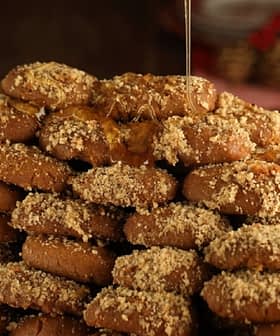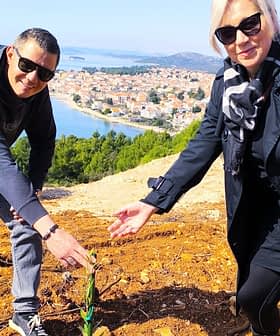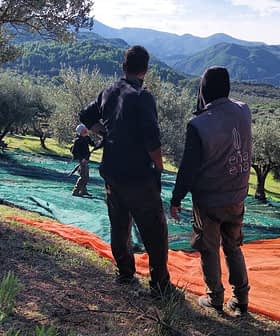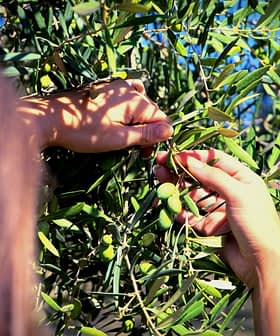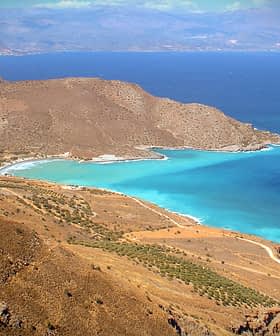Route To Sustainable Tourism In Greece Lined With Olive Oil
Olive oil has great potential in marketing Greek tourism destinations and can be used as a tool of sustainable development, a researcher noted.
The Greek tourism industry experienced a boom in the 70’s due to its attractive sea, sun, and mountain destinations, but now faces the challenge of sustainable development in a competitive global market. Research by Alexandros Passalis suggests that olive oil can be a strong marketing tool to differentiate Greek tourism destinations, enhance the tourist experience, and contribute to economic and social development by promoting local gastronomy and cultural heritage. Passalis’s study found that promoting activities related to olive oil, creating “olive oil routes,” and harmonizing the interests of rural communities with the tourism sector can help Greece utilize olive oil as a tool for sustainable tourism development.
In the early 70’s, the Greek tourism industry exploded. Magnificent Greek flirtations of sea, sun and mountains coupled with a unique history, delicious food, good airport infrastructures and a cost of living lower than other European places made the Southeastern Mediterranean country a much sought-after destination.
Olive oil can become a strong marketing tool to ensure sustainable tourism that is not confined to ‘Sea and Sun’ cliches.
This, in turn led to an “industrialization” of the tourism product, as the majority of the Greek destinations invested in a “Sea and Sun” tourist product, according to Alexandros Passalis, an expert in tourism and manager of the Alex Beach Hotel & Bungalows on the Greek island of Rhodes.
“Nowadays this is not enough. In a period when competition has set new rules in the global tourism market, the challenge for Greece is to become a successful player within the context of sustainable tourism development. The emerging demand for special-interest tourism activities, such as agriculture and food, can provide Greek destinations the opportunity to differentiate and enhance their tourism product,” Passalis told Olive Oil Times.
In his thesis for an MSc in Bournemouth University School of Tourism, which made up a chapter of the book “Tourism and New Media” that contained a slew of case studies from Italy and Greece, Passalis found that olive oil, as well as special-interest, tourism-related resources like gastronomic tourism and local food products, have great potential in marketing Greek tourism destinations, and can be used as tools of sustainable development and a way out of the country’s economic and social crisis.
But what is sustainable development? For tourism to remain sustainable, it has to encompass certain economic, social and environmental dimensions. In a nutshell, it has to respect local ecosystems and make optimal use of environmental resources that are key elements in tourism development; it has to inject income into local economies and keep their gears going in a fair way that benefits all stakeholders; and it has to respect the cultural heritage and traditional values of host communities while boosting intercultural understanding and tolerance.
“That is why olive oil can become a strong marketing tool to ensure sustainable tourism that is not confined to ‘Sea and Sun’ cliches,” said Passalis, whose research set out to evaluate how olive oil can contribute to the sustainable tourist development in Greece by differentiating and enhancing the Greek tourism product.
The researcher conducted face-to-face, in-depth interviews with Greek tourism professionals. The hotel and restaurant managers or owners who took part in the study were encouraged to describe their experiences when trying to promote olive oil, mention what guests found interesting about it and make recommendations about how the national tourism product could be enhanced through olive oil. All respondents were asked to describe the barriers in the connection between olive oil and tourist experiences in Greece and to analyze their ideas about the way Liquid Gold could become a tool of sustainable tourism development.
Overall, the research concluded that local gastronomy is essential, as modern travelers consider it a vehicle to explore new cultures, and tourist destinations must come up with ways to offer a genuine “taste” of the region to tourists without sacrificing sustainability, now more than ever.

First, it was found that if activities related to olive oil such as harvesting are promoted effectively, Greek destinations have the opportunity to create demand even in the low seasons and, more importantly, add value to the tourists’ experience (something that is happening right now in Spain with oleotourism).
Then, the study suggested that the role of the government and local authorities should be to utilize olive oil as a tool of sustainable development by harmonizing the interests of the rural communities in the tourist destinations with the tourism sector and the environment, and managing ecological, economic and cultural aspects in the most compatible way.
Many respondents suggested the creation of “olive oil routes” such as those in Italy as another way to publicize olive oil as a tourism product — routes through which visitors could learn about the production process of olive oil, its quality and cultural importance.
“All respondents of the survey agreed that olive oil can indeed differentiate the Greek tourist product. Greece devotes 60 percent of its cultivated land to olive growing, and despite its small size, holds the third place in world olive production.”
“Olive oil is inextricably linked with the Greek identity; it is an integral part of the Greek diet and is continuously used not only to cover nutritional needs but also for cultural and religious purposes,” said Passalis, whose research established that the connection between olive oil and tourism can indeed satisfy all three dimensions of sustainable tourism.


